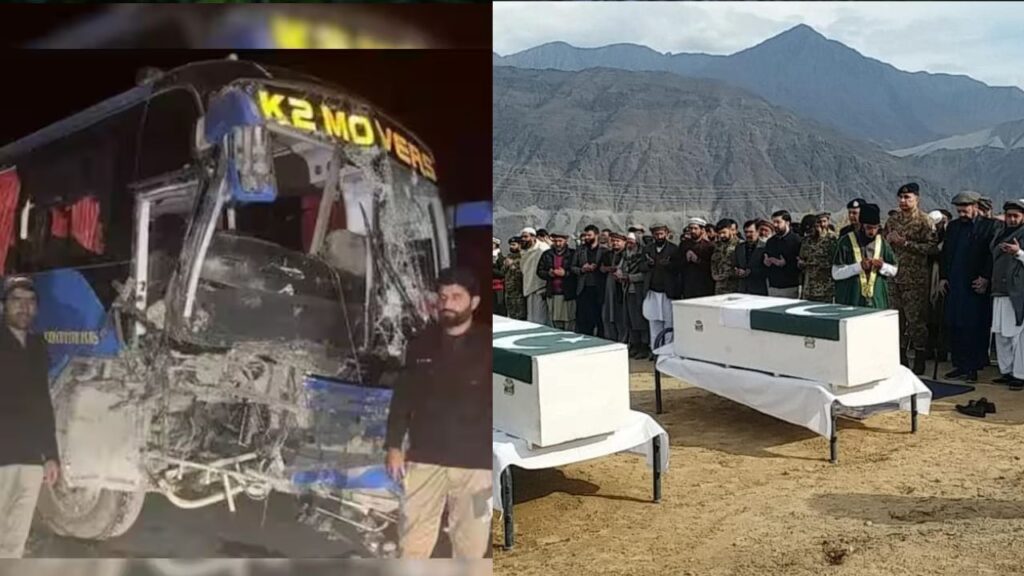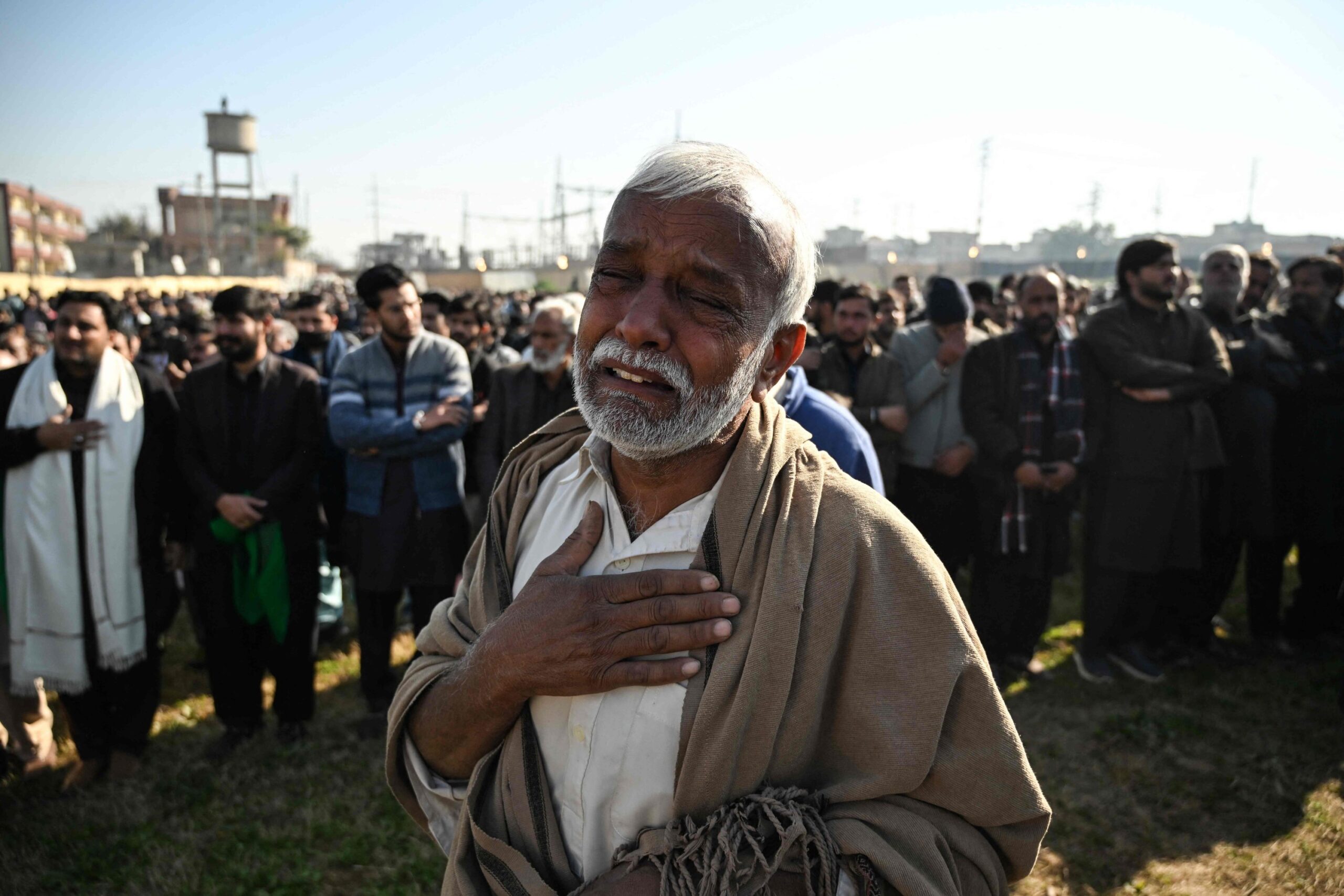Terrorist attack on passenger bus in GB’s Chilas

Analysis by TSB Team
On 2nd December, nine people were killed and 25 injured in a “terrorist” attack on a passenger bus in Gilgit-Baltistan’s Chilas. Most of the passengers belonged to different areas of Pakistan, including Kohistan, Peshawar, Ghizer, Chilas, Roundu, Skardu, Mansehra, Swabi and one or two people from Sindh, underscoring the diverse impact of the incident. Two soldiers of Pakistan Army were also martyred in the terrorist attack while one member of the Special Protection Unit was injured as well. Swift action led to the arrest of six individuals in connection with the attack.
No doubt, sectarian and militant attacks have taken place here in the past. Earlier, Diamer, where Chilas is located, as well as the adjacent Kohistan area of KP, witnessed militant activity, while both areas are known for their ultraconservative customs. However, this was not a sectarian attack as claimed by GB Home Minister Shams Lone. He said the attack was unlike past incidents that took place in the region as they were “sectarian” in nature. “It was a terrorist attack in which people from various areas and sects were killed.” He highlighted the condemnation of the attack by religious scholars, civil society, and political parties from all sects.
Previous occurrences in the area underscore its vulnerability to terrorism. In 2012, at least 18 people were pulled off buses and massacred in a sectarian attack in Kohistan. Later that year, a similar atrocity took place in Mansehra. In both attacks, most of the victims were Shia. In 2013, terrorists massacred 10 foreign mountain-climbers and one local at the Nanga Parbat base camp, while in 2021 nine Chinese nationals working on the Dasu dam project, along with four locals, were killed in a TTP suicide bombing. Meanwhile, in September, a militant incursion from Afghanistan was thwarted in Chitral, which also borders GB, resulting in a number of soldiers being martyred.
Albeit Pakistan’s security agencies have been successful in flushing out and neutralizing the militants from this area, there is a need for renewed and sustained efforts to implement strong counterterrorism measures.
The absence of an apparent sectarian motive, coupled with the military personnel among the victims, raises questions about the potential motives behind the attack. The possibility of external involvement, particularly from India, cannot be dismissed, given Gilgit Baltistan’s place on the hit-list of the Indian agency R&AW. India’s continuous efforts to disrupt the region, ranging from propaganda to supporting terrorist activities, pose a significant threat.
The strategic cooperation between Pakistan and China in the development of the area further adds to India’s concerns, prompting threats of military action and attempts to create unrest. The administration must take decisive actions to eliminate militancy, with federal counterterrorism agencies collaborating with GB and KP administrations. Local involvement, particularly in vulnerable areas like Diamer and Kohistan, is crucial to ensure militants find no refuge. Additionally, addressing the security concerns raised by transporters is essential to safeguard those traveling to and from the region. These measures are imperative not only for countering terrorism but also for promoting tourism and fostering prosperity in the region.
Acknowledging the vulnerability highlighted by the recent attack, federal intelligence agencies and local security forces must collaborate to proactively address emerging threats.
It is imperative to foster collaboration among federal counterterrorism agencies, GB, and KP administrations. A unified approach is essential for effective counterterrorism strategies, intelligence sharing, and coordinated responses.
As suggested earlier it is necessary to engage local communities, particularly in vulnerable areas like Diamer and Kohistan, to foster a sense of ownership in countering militancy. Raise awareness about the risks and encourage community reporting of suspicious activities.
The federal government and GB government ought to conduct a thorough review of security protocols for public transportation, especially in conflict-prone areas. Ensure adequate protection for passengers, and address concerns raised by transporters to improve overall safety.
Albeit there is strong indication of foreign involvement in these attacks, JIT must be constituted to conduct a comprehensive investigation into the potential external involvement, especially from India. It can collaborate with international partners to gather intelligence and evidence, holding accountable those responsible for supporting terrorist activities in the region.
GB is a strategic and sensitive area of Pakistan. Indian designs against it are not a secret. Govt of Pakistan must pursue diplomatic initiatives to address concerns and threats posed by external actors. It is high time to engage with international forums to highlight the security challenges faced by the region and seek support in curbing interference from hostile nations.
Pakistan and China must forge a stronger collaboration to work towards promoting stability and security in the region through economic development initiatives. The ongoing collaboration between Pakistan and China should be leveraged to enhance infrastructure, create job opportunities, and discourage militancy.
GB is the jewel of Pakistan which attracts tourists from across the country and the world over. All concerned departments must continue efforts to promote tourism in the region while implementing robust security measures. Striking a balance between attracting visitors and ensuring their safety is essential for the economic growth and prosperity of the area.
Strategic communication is the most important tool to defeat the misleading narrative of the terrorists and India and promote our narrative. For this purpose, all concerned departments must effectively manage media narratives to counter malicious propaganda and disinformation campaigns aimed at destabilizing the region. Ensure accurate reporting and communication to prevent the spread of false narratives that may fuel unrest.
Pakistan cannot afford to resort to knee jerk reactions and ad hoc security security measures in GB and other areas. The threat is real and perpetual. The answer should be strong and sustained. A multi-pronged CT policy, involving all above measures and departments, must be formulated and implemented with full zeal.
The Editor TSB, Dr. Naveed Elahi and Assistant Editor Amna Siddique

